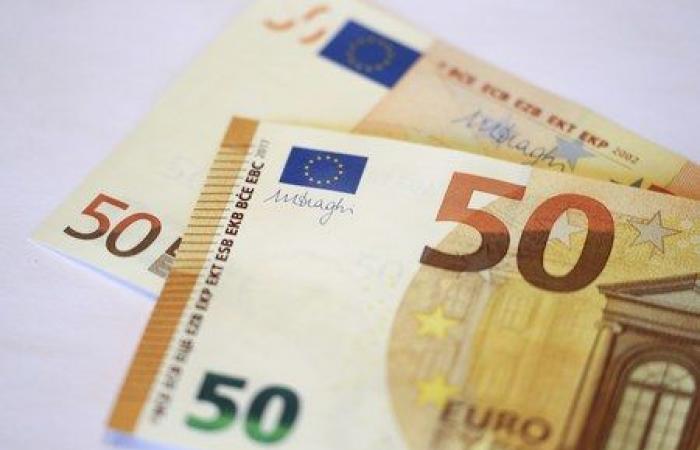European stocks fell on Tuesday, reversing some of the previous day’s rally, while the U.S. dollar hit a nearly 38-year high against the Japanese yen as the possibility of a second Donald Trump presidency sent Treasury yields higher.
The European Stoxx 600 index lost 0.8% and the French CAC40 index fell by the same proportions, failing to maintain its gains from the previous day. Most other European national indices, notably in Britain, Germany, Italy and Spain, were also in the red.
France’s benchmark index of blue-chip stocks rose 1% on Monday as the country’s first round of parliamentary elections indicated that the most likely outcome would be a legislative deadlock rather than a majority for the far right or far left.
The premium demanded by investors to hold French debt over German debt also narrowed after the result and stood at 75 basis points, although investors remain cautious ahead of the second and final round of voting next Sunday.
On Tuesday, the question will be whether opponents of the French far right can form a united front to prevent it from winning.
“The economic backdrop remains favourable for Europe, but political risk is back – in France – and having an impact,” said Samy Chaar, chief economist at Lombard Odier.
Eurozone consumer inflation, released on Tuesday, came in at 2.5%, in line with expectations.
The election is also a key focus for investors in U.S. assets, with Treasury yields remaining elevated and supporting the dollar.
“It appears to us that investors are increasingly trading on the prospect of a Trump victory. More fiscal stimulus and tariffs (are) … inflationary and could put upward pressure on long-term yields,” said Derek Halpenny, head of EMEA global markets research at MUFG.
“The Constitutional Court’s ruling yesterday that a president is immune from prosecution while carrying out his ‘official’ duties is another development that will increase expectations of a Trump victory on November 5.”
The benchmark 10-year Treasury yield was last at 4.45%, down 3 basis points on the day but within sight of the previous day’s one-month high of 4.49%, and up about 20 basis points in less than a week.
Germany’s 10-year yield was at 2.61%, a near three-week high, moving in line with its U.S. counterpart, and also rising as investors unwound some of their flight to safe-haven assets after the French election.
S&P 500 and Nasdaq futures were down about 0.5%.
THE YEN IN THE EYE
Rising U.S. yields supported the dollar, and the euro was down 0.1% at $1.0729.
The dollar’s moves against the Japanese yen were more striking, hitting 161.745 yen on Tuesday, a level not seen since December 1986, leaving traders on alert for Japanese intervention.
Japanese authorities spent some 9.8 trillion yen ($60.65 billion) to prop up the beleaguered Japanese currency when it plunged to 160.82 per dollar between late April and early May. Although it has since weakened beyond that level, the pace of change has been less dramatic than in late April.
Japanese Finance Minister Shunichi Suzuki reiterated Tuesday that authorities were monitoring foreign exchange markets closely, but he stopped short of warning that they stood ready to act.
Japan’s Nikkei index, which often but not always benefits from a weaker currency, rose more than 1%, putting it ahead of other major markets in the region.
Monetary policy will be in focus later in the day, when Federal Reserve Chairman Jerome Powell and other top policymakers speak at an event in Sintra, Portugal, hosted by the European Central Bank.
A parade of potentially crucial U.S. employment data also begins Tuesday with the JOLTS job openings report, a Fed favorite, followed by ADP numbers a day later and the all-important monthly payrolls numbers on Friday.
In energy markets, Brent crude futures rose 0.8% to $87.28 a barrel, building on a 1.9% rise overnight on possible supply disruptions from Hurricane Beryl.
Gold fell 0.5% to $2,320.7 an ounce.
($1 = 161.5900 yen)






